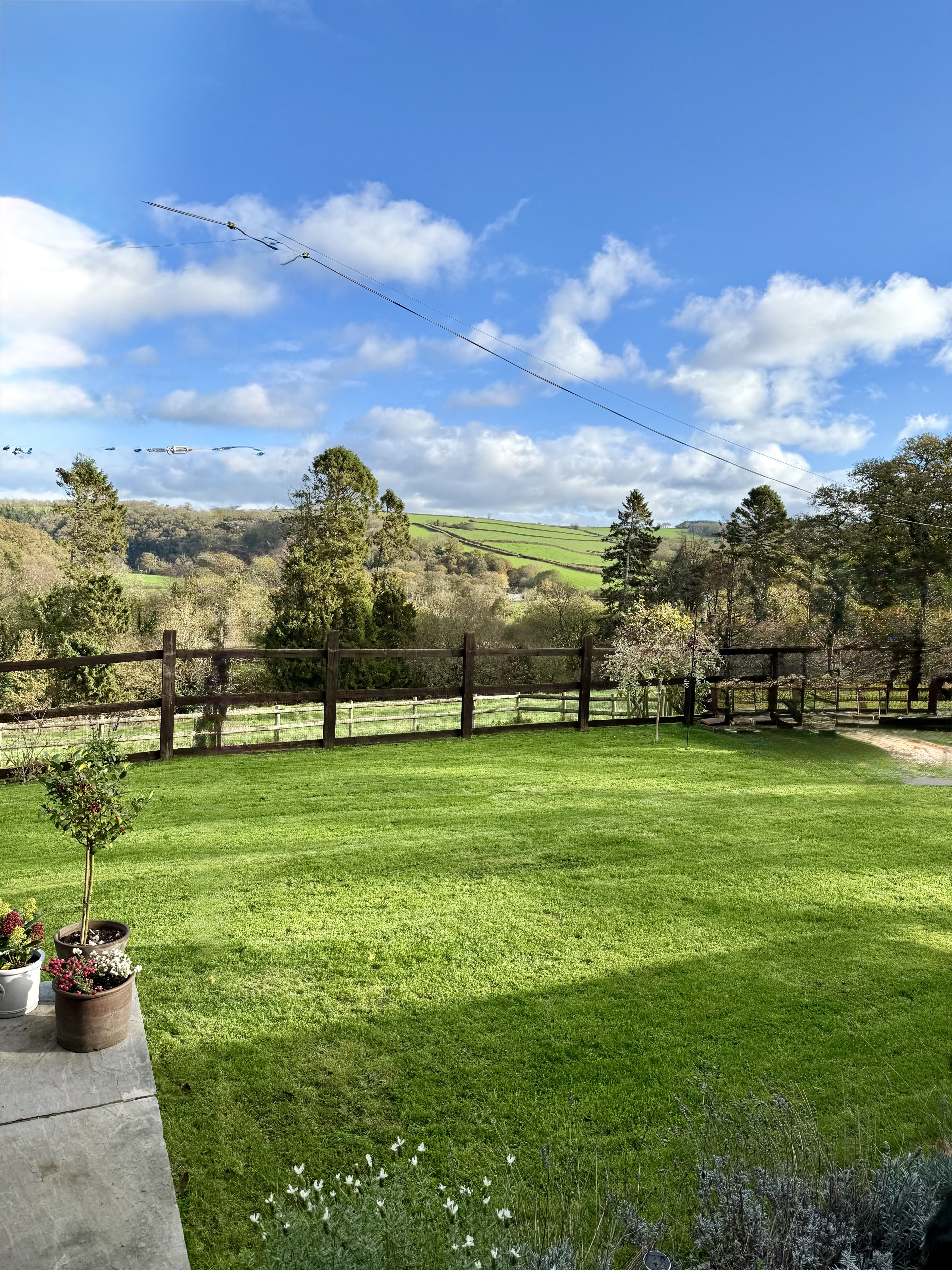Cut the Costs, Not the Comfort: Smart Energy Tips That Can Save You Money!

If you were to apply just the changes with a £ saving below, you could save around £313 a year!
Heating spaces
Did you know the recommended temperature during cold weather is 21°C (70°F) in main areas and 18°C (64°F) in other rooms such as your bedroom. However, if you were to turn it down by just 1°C when your room is comfortably warm, it will save you money. In fact, this can save you up to £90 a year
Closing doors and using draft stoppers will help to keep heat in rooms as will closing windows helping you to save money on heating your home.
All rooms
Lights – Turning lights off when leaving the room can save you around £20 a year
Lightbulbs - Did you know LED bulbs can save around £45 a year
Power off - Getting into the habit of turning off items such as your television at the socket or on the set and not leaving it on standby can save around £55 a year
Charging - Do you often leave items like your phone or other items on charge overnight or generally longer than needed? By only charging as long as needed, you will prevent waste and save.
Bedroom
It takes time for rooms to cool down so you might also think about turning the heating off before you go to bed. But remember, it’s important that you keep yourself sufficiently warm and safe.
Close the curtains at dusk to reduce heat escaping ready for when you go to bed. Did you know that floor-standing curtains provide extra protection from heat loss and if you have radiators behind them, it’s a good idea to tuck the curtains behind.
Use a thicker duvet tog in the colder months and get the blankets and fluffy clothing out when relaxing in the front room to keep snuggly.
Bathroom
Shower - If you’re able to reduce time, aiming for around 4 minutes you can save around £65 a year
Kitchen
Kettle - By only adding the water you need you can save around £11 a year
Washing machine - If you wash at 30°C and do one less wash a week can save around £27 a year
Washing up –fill a bowl and not leave the tap running saves water waste.
Food and Cooking (small changes)
If you cut food into smaller pieces, it can speed up the cooking time. Another good option is to cook food in batches, storing the extra portions in the freezer. When it comes to defrosting, do this overnight in the fridge rather than using an appliance
It’s a good idea to use a microwave to cook or heat food as it tends to be a much more efficient method of cooking. And if you cover the food with an appropriate lid or pierced cling film then it holds moisture which speeds up the cooking time.
If you do choose to use the oven, try to keep the door closed as much as possible to avoid heat loss.
When it comes to the hob, using the correct size pans and keeping the pan lids on will reduce the cook time. Where-as choosing to simmer over boiling or reducing the heat when close to boil helps to save energy. And like with the kettle, using just enough water to cover the food rather than filling the pan.
And don't forget our Disability Energy Support team are available to provide telephone or email support on a number of areas. Request contact including a tailored action plan with helpful information, here - Disability Energy Support | Disability charity Scope UK
Comments
-
this not a knock but when I had the EPC the guy told me if I had larger gaps under my doors I would score much higher. I told him politely that I did not need his EPC as my property is grade 2 * listed.
0 -
I like your room picture
0 -
Thanks @jonf. I wish it was my room, looks wintery and toasty doesn't it.
1 -
Just think of all the micro particles of soot you aren't breathing in. 😉
1 -
4
-
I like a nice home
1 -
The reclaimed oak from the mill in the bedrooms retains the heat so well and pet friendly. Proper insulation and a wet under floor heating. Stone in hall. The whole place is underfloor heated.separate room thermostats and floor sensors.)
it’s a stunning place to live if you are mobile. I said I would never sell as I rebuilt this old barn stone by stone. It is part of me. . Guess never say never eh.4 -
Whilst I do agree with most of your money saving suggestions, I must query the "switch off your TV at the wall and save £55 per year2…That implies savings of over £1 per week.
Maybe an old CRT screen would have used more power - but most Flat screen TV's have a standby function on them - which puts the device into deep sleep mode (using around 0.5 watts) - this would cost pennies per year !
2 -
@jonf Lovely house!
1 -
No way am i turning my heating down. I could not cope. My screws and plates would go rusty.
1 -
About 5 years ago I figured out how my electricity bill is calculated and it's actually quite doable to figure out. Are you charged in the UK by KWH (kilowatt hour)? Maybe I can help explain how to easily look at something you're going to plug in and determine how much electricity it will cost. Or perhaps someone else here knows? It's very helpful.
0 -
Ignore the "price cap" - that's meaningless. It is the average costs of UK user.
Instead - check the price per kwh - that's how much you'll pay per unit (beit gas or electricity)
Heating (homes, kettles and ovens) is more expensive to run than lighting or anything else - A 2kwh heater will use 2 units per hour. a 3 bar electric fire (3kwh) will currently cost you 78p per hour to run (at 26p per kwh / unit).
Running an oven (1kw) for an hour will cost about 26p. a kettle will consume 3kw but is only run for a couple of minutes - so costs pennys…
A gas fire will consume up to 10 units per hour - but gas is much cheaper (6.3 pence) than electricity per kwh (unit) - so heating a room by gas is cheaper than using electricity.
It's a simple calculation - multiply the number of kwh (units) an electrical device consumes by 26p. That's how much it will cost to run each hour.
On top of this is the (fixed) standing charge - which we all have to pay on top of any energy used. 41p for gas and 61p for electricity.
1 -
Good shout on the kwh's. Your appliances should have a sticker showing this information so you can work out how much they use.
0 -
If you switch off the kettle before it automatically stops, you can save around £14 per year. Also wash your clothes less often, this not only saves electricity but preserves the quality of your garments. You can get battery operating lights.
1 -
0
-
A kettle does use a lot of power - but it's only used for a few minutes at a time.. so switching it off before it boils will only save pennies per week !
lighting - use LED bulbs to save power… not batteries - batteries cost more than the amount that you will save.
0 -
Yes we should only boil what we need.
0 -
0
-
Shower once a week, whether you need it or not!💩
I'm not that hard-core, but i do have only 3 or 4 showers per week. Gus hasn't ever had a shower, so he can't criticise my habits. 💩🐶💩
0 -
I never realized that turning the thermostat down just one degree could save $90. I started doing the 4-minute shower thing last week to save on the water bill. It's a quick adjustment but definitely helps the budget.
1
Categories
- All Categories
- 15.7K Start here and say hello!
- 7.4K Coffee lounge
- 104 Games den
- 1.7K People power
- 152 Announcements and information
- 24.9K Talk about life
- 6.1K Everyday life
- 488 Current affairs
- 2.5K Families and carers
- 892 Education and skills
- 2K Work
- 569 Money and bills
- 3.7K Housing and independent living
- 1.1K Transport and travel
- 636 Relationships
- 1.6K Mental health and wellbeing
- 2.5K Talk about your impairment
- 878 Rare, invisible, and undiagnosed conditions
- 936 Neurological impairments and pain
- 2.2K Cerebral Palsy Network
- 1.2K Autism and neurodiversity
- 41K Talk about your benefits
- 6.1K Employment and Support Allowance (ESA)
- 20.1K PIP, DLA, ADP and AA
- 8.9K Universal Credit (UC)
- 5.9K Benefits and income











